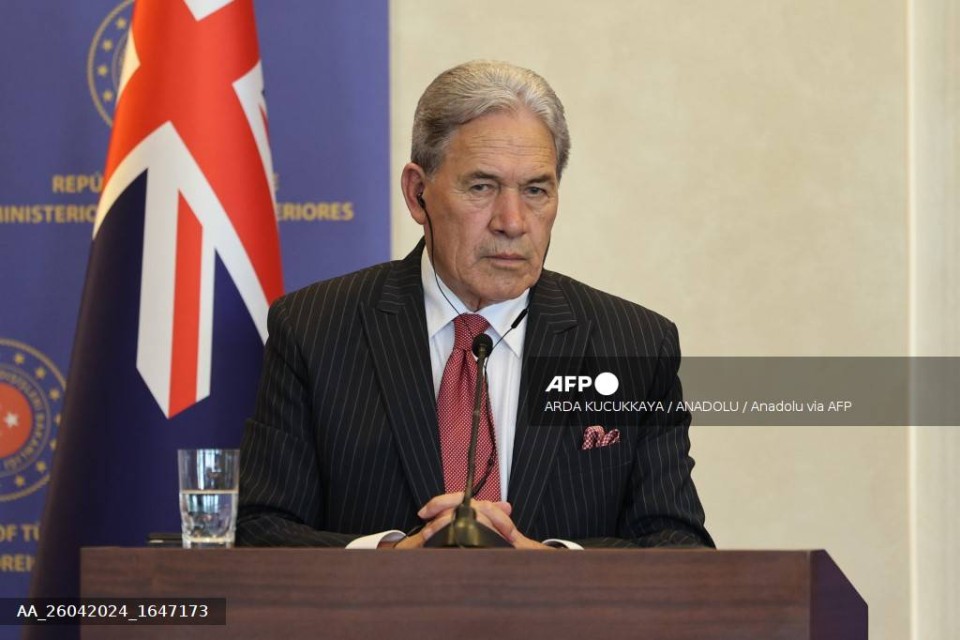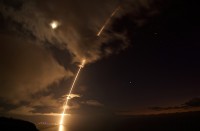
WELLINGTON, May 1, 2024 (AFP) – New Zealand’s foreign minister on Wednesday ruled out quickly joining a landmark defence technology pact with Australia, the United Kingdom and the United States, but attacked AUKUS critics as outdated.
Arguing the underpinnings of New Zealand’s independent-minded foreign policy have “seismically shifted”, Winston Peters said it would be “irresponsible” of the government not to explore deeper defence cooperation with allies.
New Zealand’s possible participation in AUKUS efforts to develop advanced military technology — particularly in areas like artificial intelligence, undersea drones and hypersonic missiles — has roiled the country’s politics.
Centre-left former prime minister Helen Clark is among those who have argued that participation in AUKUS would threaten New Zealand’s sovereignty and risk damaging relations with major trade partner China.
Peters on Wednesday said those arguments were outdated, saying at parliament: “The world has changed, and so must we.”
– National interest? –
Citing once-neutral Sweden and Finland’s decision to join NATO, Peters said the strategic environment that once delivered for New Zealand’s interests was no more.
“These foundations, which underpinned New Zealand’s foreign, trade and economic policies in decades past, have seismically shifted in the first quarter of the 21st century,” he said.
“The Pacific region’s strategic environment is not benign, far from it. Remorseless pressure is being exerted across it as beachheads are sought and influence peddled.”
Peters said that as a result, New Zealand should consider taking part in AUKUS when the time comes.
“It would be utterly irresponsible for any government of any stripe to not consider whether collaborating with like-minded partners on advances in technology is in our national interest,” he said.
“Here New Zealand needs to ask hard questions of itself. As we seek a more secure region and world, are we doing our share?”
“New Zealand’s long history of parsimony when it comes to defence cannot hold if we wish to continue garnering respect from, and influence on, others,” he said.
Peters said it was not yet clear that New Zealand would be invited to participate in AUKUS’s so-called pillar two, which focuses on defence technology, even after two years of preliminary talks.
Washington, London and Canberra have also been in talks with Japan and South Korea, which are in favour of participating and appear further along in the process.
“We must also carefully examine what utilities, if any, we might offer, or be expected to offer pillar two partners, in return. That will take time,” Peters said.
“At that future point we will need to carefully weigh up the economic and security benefits and costs of any decision about whether participating in pillar two is in the national interest.
“The government is a long way from this point of being able to make such a decision.”
AUKUS also includes a plan to equip Australia with nuclear-powered conventionally armed submarines.
There is no suggestion that New Zealand would take part in that project, but any association could be seen as a threat to the country’s staunch anti-nuclear policy.
In a sign of how contentious the issue has become, Peters was briefly interrupted during his speech at parliament by a protester holding up an anti-AUKUS placard.
“Show some respect,” Peters told the woman before she was escorted out by security.







